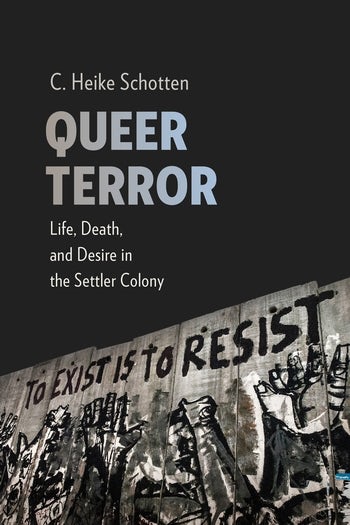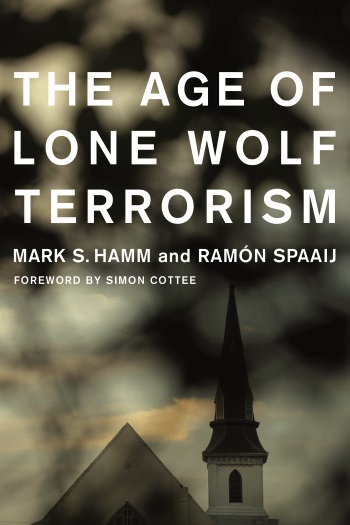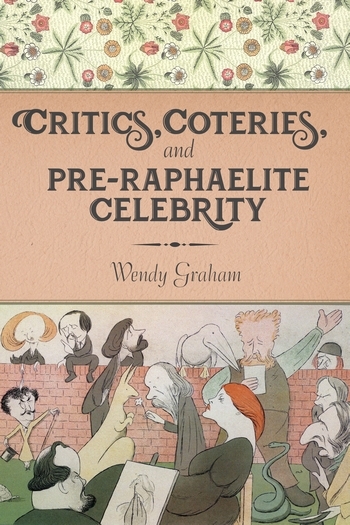C. Heike Schotten on Queer Terror

Today, we are featuring a book from the New Directions in Critical Theory series with a guest post from C. Heike Schotten, author of Queer Terror: Life, Death, and Desire in the Settler Colony. In this book, C. Heike Schotten offers a critique of U.S. settler-colonial empire that draws on political, queer, and critical indigenous theory to reframe the concept of terrorism. She provides an anatomy of the War on Terror’s moralism, arguing for a new interpretation of biopolitics that is focused on sovereignty and desire rather than racism and biology.
• • • • • •
We might say that it was George W. Bush who ushered in the twenty-first century with his 2001 assertion: “Either you are with us, or you are with the terrorists.” This now-infamous declaration functioned, on the one hand, as an ultimatum: either become one of “us,” or we cannot but conclude that “you” are “with the terrorists.” On the other hand, it was also a threat: to “the terrorists” who, although never clearly defined, were certainly the ones threatening “us” and, therefore, the primary target of Bush’s statement. This declaration and the larger speech of which it is partially formed the commencement address for twenty-first-century U.S. imperialism.
However remote the long eight years of the George W. Bush presidency may now seem, invoking them remains necessary because the War on Terror that he notoriously inaugurated remains stubbornly with us. Its tenacity and pervasiveness are the impetus for Queer Terror: Life, Death, and Desire in the Settler Colony. In this book, I suggest that Bush’s “with us or against us” civilizational fear-mongering is, in fact, the old logic of settler colonialism, recycled for imperial purposes. Bush’s War on Terror rhetoric, in other words, is the ideology of the frontier: a world where hostile Indian “savages” threaten to destroy an emerging settler nation, a universe where Native refusals to cede land or sovereignty threaten the very coherence of the settler state. Today’s “terrorist,” in short, is the imperial American version of the “savage.”
In some ways, this is not a new argument. There is, however, a moralizing excess to Bush’s declaration—and, in fact, to most American discussions about “terrorism,” both popular and elite—that has, for the most part, gone unremarked. In other words, the moral Manicheanism of Bush’s statement does more than just make a statement about biological life and the threat of its demise. It suggests that being “with the terrorists” invites another kind of death, a death weirder or somehow worse than the mere end of physical existence.
“However remote the long eight years of the George W. Bush presidency may now seem, invoking them remains necessary because the War on Terror that he notoriously inaugurated remains stubbornly with us.”
That “something worse” is revealed later in the speech when Bush asserts, “These terrorists kill not merely to end lives, but to disrupt and end a way of life.” “Terrorism,” in other words, portends not merely the loss of life but also the loss of an entire worldview. To be with “the terrorists” is not simply to choose death, an already unthinkable choice. It is also to choose the destruction of an entire world, even a “civilization.” This is the unthinkable moral threat behind Bush’s statement, and it remains at the core of the problem of “terrorism” in our still-post-9/11 moment. This wholesale existential nihilism is how and why “terrorism” is “evil” and therefore impossible to address via “normal” measures.
I bring these connections to light by using queer theory as both a methodological tool to excavate the interrelations of settler colonialism and the War on Terror as well as a liberatory praxis that offers important insights into anti-imperial, anticolonial struggles. As a fundamentally antimoral enterprise, queer theory is consistently alert to the many ways that failures of propriety, uprightness, and goodness are slandered as evil, perverse, unfit, improper, nihilist, or annihilatory. Moreover, as a mode of inquiry and political praxis that is also keenly attuned to desire and its vicissitudes, queer theory recognizes the ways that political formations ultimately produce specific subjects of desire, who imagine themselves and their “way of life” in particularly oppressive—i.e., moralizing—ways.
Bush’s moralization of “life” into a “way of life” whose possible destruction threatens an unthinkable existential annihilation is a sign that the American “way of life” and its imperial order have become the indisputable contours of all coherent existence. Any violation of or resistance to that way of life consequently becomes unthinkable, terrorist, savage. It becomes, in other words, queer.
“Queerness, in other words, names a kind of negativity or nihilism whose existence appears to threaten the very order and cohesion of social life as such.”
Queerness, then, is another name for the nihilism and unthinkability of terrorism and savagery. “Queer” here refers not simply to lesbian, gay, bisexual, trans*, and queer people (although it often does that too). “Queer” here means, more precisely, the failures of both meaning and propriety that the arbiters of social life necessarily attempt to quash in their efforts to secure the (always-only-ideological-but-nevertheless-essential-to-believe-in) “smooth” and “proper” functioning of the social order. Queerness, in other words, names a kind of negativity or nihilism whose existence appears to threaten the very order and cohesion of social life as such.
As an enterprise, of course, queer theory exists insofar as it refuses the stigma of such moralizing abjection and instead embraces debasement as both the emblem and activity of revolt. When it comes to the War on Terror, then, queer theory’s antimoral nihilism is a crucial contribution to political resistance. Queer theory’s opposition to moralisms of all sorts and its celebration of impropriety, nihilism, perversity, and any other such threats to reactionary, securitized, imperial, and settler-colonial social orders make clear what our task must be, especially when confronted with an ultimatum between the impossible-to-refuse and an otherwise unthinkable choice that is annihilatory and perverse. Recognizing the settler-colonial origins of War on Terror discourse and its contemporary Islamophobic manifestations, an anti-imperial and anticolonial position recognizes that the only choice worth choosing in Bush’s ultimatum is the only choice he leaves clearly off the table because it is too awful, too unimaginable, too queer to be affirmed. If, as Bush declares, the only options are to side with a settler, imperial “us” or with a queered, savage, terrorist other, the choice, I think, is clear: we must choose to stand with the “terrorists.”
Read the introduction to Queer Terror: Life, Death, and Desire in the Settler Colony.




